English primary school in London 2026
-
 from 5371.00 £ / termProgram namedateAgeFeesShow all courses (4)Primary schoolLast booking 3 weeks agoAll year round5-11
from 5371.00 £ / termProgram namedateAgeFeesShow all courses (4)Primary schoolLast booking 3 weeks agoAll year round5-11 -
 from 8000.00 £ / yearProgram namedateAgeFeesShow all courses (4)Primary schoolLast booking 1 weeks agoAll year round3-13
from 8000.00 £ / yearProgram namedateAgeFeesShow all courses (4)Primary schoolLast booking 1 weeks agoAll year round3-13 -
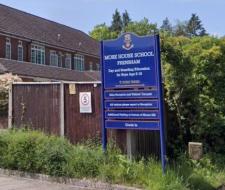 from 6903.00 £ / yearProgram namedateAgeFeesShow all courses (4)Primary schoolLast booking 1 weeks agoAll year round10-13
from 6903.00 £ / yearProgram namedateAgeFeesShow all courses (4)Primary schoolLast booking 1 weeks agoAll year round10-13 -
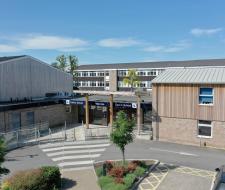
-
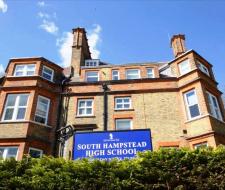 Program namedateAgeFeesShow all courses (3)Primary schoolLast booking 3 weeks agoAll year round4-11
Program namedateAgeFeesShow all courses (3)Primary schoolLast booking 3 weeks agoAll year round4-11 -
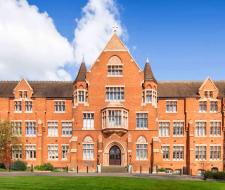 Program namedateAgeFeesShow all courses (3)Primary schoolLast booking 2 weeks agoAll year round11-13
Program namedateAgeFeesShow all courses (3)Primary schoolLast booking 2 weeks agoAll year round11-13 -
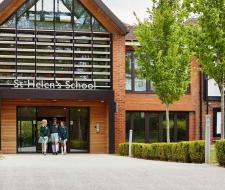 Program namedateAgeFeesShow all courses (3)Primary schoolLast booking 3 weeks agoAll year round3-11
Program namedateAgeFeesShow all courses (3)Primary schoolLast booking 3 weeks agoAll year round3-11 -
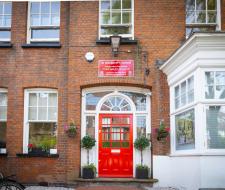
-
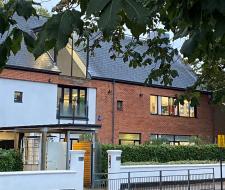
-
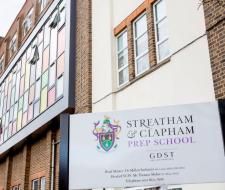
 United KingdomLondonCurrently watching: 1Program namedateAgeFeesShow all courses (3)Primary schoolLast booking 1 weeks agoAll year round3-11
United KingdomLondonCurrently watching: 1Program namedateAgeFeesShow all courses (3)Primary schoolLast booking 1 weeks agoAll year round3-11
At the age of 5 to 11 years old children obtain primary education. At the same time, attending preparatory classes or kindergartens is optional for children aged 3-4 years old. In the case of attending these institutions, children begin learning in elementary school more easily.
UK schools are featured by a small number of students in classrooms, allowing the teacher to pay attention to each student. So, the teacher knows all their achievements and failures of each student. The children's team maintains a friendly and cozy atmosphere, and teachers treat students respectfully.
Primary education largely aims at developing students' social skills. So, children learn to communicate with each other, to take responsibility for their words and actions. No matter the school type, private or public, any discrimination based on skin colour, gender, etc. is suppressed. Children are brought up to be tolerant.
Educational process stipulates that children receive knowledge, which can be applied in real life. Usually the classes begin at 9.00 and last until 15.00. The duration of the lesson is 60 minutes.
The first two lessons, as a rule, are mathematics and English, i.e. the most difficult subjects that require maximum concentration. These lessons are followed by a big break that lasts two hours. At this time, children participate in activities on the school playground, communicate with each other, and have lunch. After that, a couple of easier lessons are held, which may include the basics of science, music, art, etc. In the classroom, much attention is paid to creativity, research, scientific experiments, and group work.
Alternative destinations
Studying process in primary schools in London
All primary classes in London are classified in two levels according to age: KS1 — 5-7 years, KS2 — 7-11 years. Accordingly, different academic disciplines are studied at each level:
- KS1 — English, mathematics, literature, natural sciences, physical education, art, music. Also cthe teaching of computer literacy basics is conducted. The educational process is not abstract, but applied: the program is explained in subjects understandable to each pupil. Thanks to this, the knowledge gained during first years of studying is easily applied by students in everyday life.
- KS2 — In addition to KS1 level subjects, teaching of history and geography is conducted. Also at the KS2 level, the program becomes more complex. Educational process stipulates the study of the surrounding world.
To assess academic performance and comprehension of educational materials, testing is regularly conducted. The gradual complication of school subjects and the applied nature of knowledge allow the child to approach middle and high school more prepared. Upon completing studies in London primary school, the child already understands approximately what are his interests in studying, what he wants to do more.
The best primary schools in London – TOP 3
- Barnes Elementary School
The core school goal concerns teaching students to become purposeful and rely on them with diverse general learning skills, which can be applied in further life.
The students can enjoy their free time and communicate well with their comrades while participating in extracurricular activities.
The educational process is aimed at preparing students for life and work in the twenty-first century, taking into account global modern trends in technology.
Many students have special academic needs. The school has obtained several awards, including Artsmark Gold, Activemark Gold, Healthy Schools Award, Basic Skills Agency Quality Mark and London Schools Environmental Award.
- University School of North London
It is considered as one of the top British primary schools. With a foundation in 1850, a separate form of studying is offered, inviting only girls. The school is located in Edgware, in the London borough of Harrow. In addition, it has two affiliated schools on Jeju Island in South Korea and in Dubai,offering mixed forms of studying. Educational process is organized under a British curriculum.
The school offers an ambitious academic education. In addition, the school aims at educating a team of professional teachers who inspire students with love for their subjects at school.
- Westminster School
The first mentions of the school date back to the 1370s and are kept in the Muniment Hall of Westminster Abbey. Most of the school premises date back to the 10th-century Anglo-Saxon abbey in Westminster. According to annual reports, the school was founded by decree of Pope Alexander III in 1179. As an interesting fact, there is no evidence which can confirm this fact.
Learning programs-summary information
| Name | Meaning | Equivalent | Min. age | Duration, years |
Next stage | Cost |
|---|---|---|---|---|---|---|
| GCSE | General certificate of secondary education | secondary education (non-accomplished) | 14 | 1–2 | A-Levels | 15,000 USD+ |
| A-Levels | Advanced level | secondary education (accomplished) | 16 | 2 | University | 15,000 USD+ |
| BTEC | Business and Technology Education Board | secondary special education | 14 | 2–3 | University/ work | 15,000 USD+ |
| Oxbridge Preparation | Preparing for Oxford and Cambridge | secondary education (accomplished) | 17 | 1 | University | 15,000 USD+ |
| International Baccalaureate | International baccalaureate | secondary education (accomplished) | 16 | 2 | University | 18,000 USD+ |
| Foundation/ Pathway Year | Preparatory year | admission to the 1st year of university | 17 | 1 | University | 14,000 USD+ |
| NCUK | The Northern consortium | 2 year university | 17,5 | 1 | 2 year University of NCUK | 13,000 USD+ |
| Special Preparation (Medics/Math/Business) | Specialized training | - | 14 | optional | optional | 4,000 USD+ |
| Academic English | Academic English | Language school | 8 + | 6–12 months | School or University | 8,000 USD+ |
Advantages and disadvantages of English schools
| Advantages | Disadvantages |
|---|---|
| The opportunity to enter the best universities in England, USA, Canada, Switzerland, Europe, the world | Expensive |
| High quality of education and academic standards | Strong workload |
| Perfect English after graduation | The need to change the social environment; it takes time to adapt |
| Useful contacts | The difficulty of choosing the most suitable school for the child, requires a qualified specialist |
Top 21 boarding colleges in England 2026
| 1 | Cardiff Sixth Form College |
| 2 | National Mathematics and Science College |
| 3 | Abbey College Cambridge |
| 4 | d'Overbroeck's College |
| 5 | MPW London |
| 6 | CATS Cambridge |
| 7 | Kensington Park |
| 8 | DLD London |
| 9 | King's College St Michael’s |
| 10 | Bellerbys Cambridge |
| 11 | Chelsea Independent College |
| 12 | MPW Cambridge |
| 13 | Bellerbys Brighton |
| 14 | CATS London |
| 15 | St Clare's Oxford |
| 16 | Bishopstrow College |
| 17 | CATS Canterbury |
| 18 | Bellerbys London |
| 19 | Ealing Independent College |
| 20 | Cambridge Tutors College |
| 21 | Abbey Manchester |
